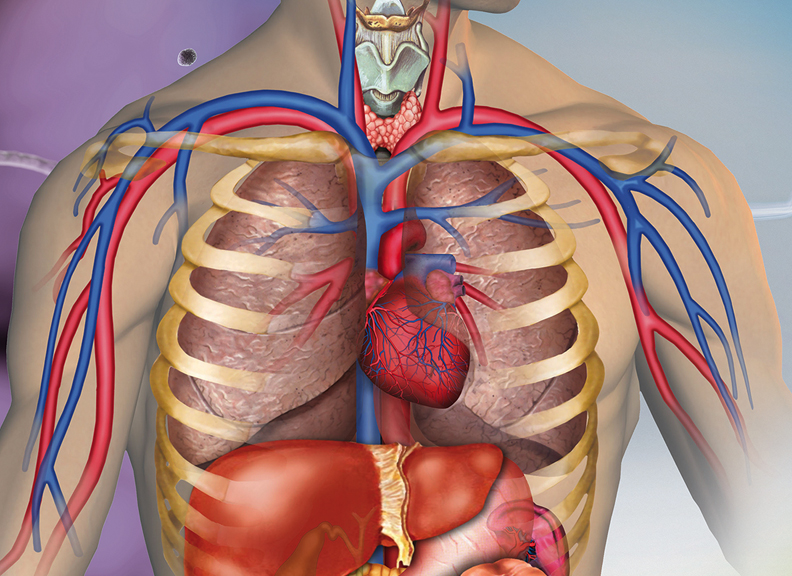PROJECT
Fixing the ailing heart
Developing therapies to improve heart function in animal models of cardiomyopathy
Cardiovascular disease remains the leading cause of death. The problem with the failing heart is an inability to maintain energy supply from the mitochondria. This project targets a calcium channel to develop therapy to improve heart function in animal models of cardiomyopathy.
Cardiomyopathy is pathology of the heart muscle that ultimately leads to heart failure and death. While in the majority of cases the primary cause is ischemic due to coronary artery disease, cardiomyopathy can also result from mutations in sarcomeric proteins or cytoskeletal proteins. The pathophysiology is associated with alterations in calcium homeostasis, cytoskeletal disruption and mitochondrial dysfunction but the mechanisms for the altered metabolic activity are not well understood.
We are characterising the mechanisms for altered mitochondrial function in the intact myocyte and design therapy to prevent or reverse the cardiomyopathy. Successful reversal of mitochondrial dysfunction will significantly reduce morbidity and mortality by preventing heart failure.
For more background information, see the suggested readings below.
- Suggested readings
-
- Viola HM, Adams AM, Davies SM, Fletcher S, Filipovska A, Hool LC. Impaired functional communication between the L-type calcium channel and mitochondria contributes to metabolic inhibition in the mdx heart. Proc Natl Acad Sci USA. 2014;111:E2905-2914
- Tang H, Viola HM, Filipovska A, Hool LC. Ca(v)1.2 calcium channel is glutathionylated during oxidative stress in guinea pig and ischemic human heart. Free Radic Biol Med. 2011;51:1501-1511
- Viola HM, Hool LC. Cross-talk between L-type Ca2+ channels and mitochondria. Clin Exp Pharmacol Physiol. 2010;37:229-235
- Seenarain V, Viola HM, Ravenscroft G, Casey TM, Lipscombe RJ, Ingley E, Laing NG, Bringans SD, Hool LC. Evidence of altered guinea pig ventricular cardiomyocyte protein expression and growth in response to a 5 min in vitro exposure to H(2)O(2). J Proteome Res. 2010;9:1985-1994
- Viola HM, Arthur PG, Hool LC. Evidence for regulation of mitochondrial function by the L-type Ca2+ channel in ventricular myocytes. J Mol Cell Cardiol. 2009;46:1016-1026
Research team leader: Professor Livia Hool
I completed my PhD at Royal North Shore Hospital in Sydney prior to undertaking two years’ postdoctoral research as an American Heart Association Postdoctoral Fellow in the School of Medicine, Case Western Reserve University, Cleveland, Ohio. In 1998 I was awarded a Peter Doherty Fellowship from NHMRC and relocated to UWA where I established the Cardiovascular Electrophysiology Laboratory in Physiology.
How to apply
Interested in becoming part of this project? Complete the following steps to submit your expression of interest:
Step 1 - Check criteria
General UWA PhD entrance requirements can be found on the Future Students website.
Requirements specific to this project include:
- Undergraduate degree with a major in physiology or biochemistry is desirable but a passion for undertaking medical research is enough.
Step 2 - Submit enquiry to research team leader
Send your enquiry to the research team leader and we will be in touch soon.
Step 3 - Lodge application
After you have discussed your project with the research team leader you should be in a position to proceed to the next step of the UWA application process: Lodge an application. Different procedures apply to domestic and international students.
Scholarships
- Domestic students
-
All domestic students may apply for Research Training Program and University Postgraduate Awards (UPA) scholarships
- International students
-
A range of scholarships are available from international organisations and governments. The full list, organised by country, is available on the Future Students website.
In addition, all international students may apply for International Research Training Program scholarships.
- Indigenous students
- Indigenous students are encouraged to apply for Indigenous Postgraduate Research Supplementary Scholarships.
- Forrest Foundation scholarships
- All international and Australian students who wish to study towards the degree of Doctor of Philosophy (PhD) at The University of Western Australia may apply for Forrest Scholarships.











